Crew in Britain's first ever full-size reconstructed sea-going Bronze Age boat, bail out water as they prepare to paddle out to sea near to the National Maritime Museum as it makes its maiden voyage on March 6, 2013 in Falmouth, England. With a crew of of 18, equipped with Bronze-Age-style wooden paddles, the 15 metre long experimental vessel – a replica of the sort of craft used for long-distance trade between Britain and the continent 4000 years ago – will be used to test prehistoric seafaring methods in a project in collaboration with the University of Exeter and the Falmouth-based National Maritime Museum Cornwall. (Photos by Matt Cardy)
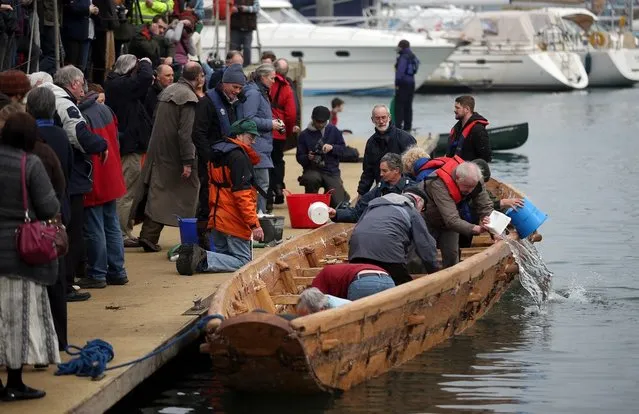
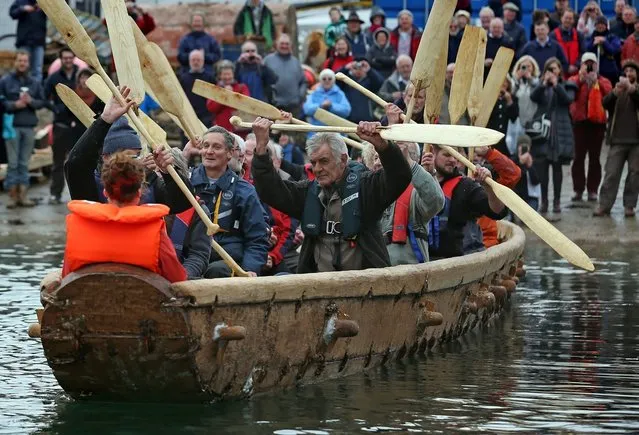
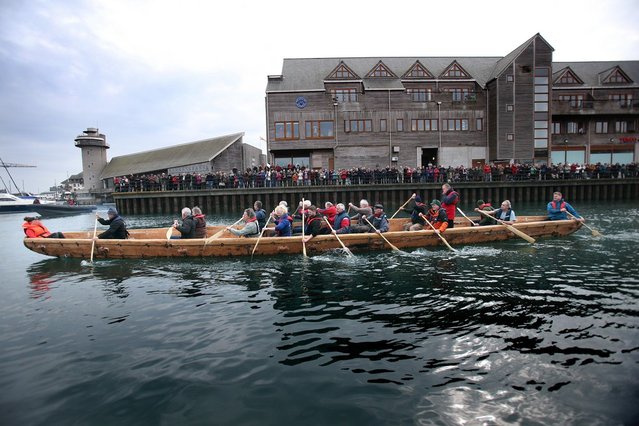
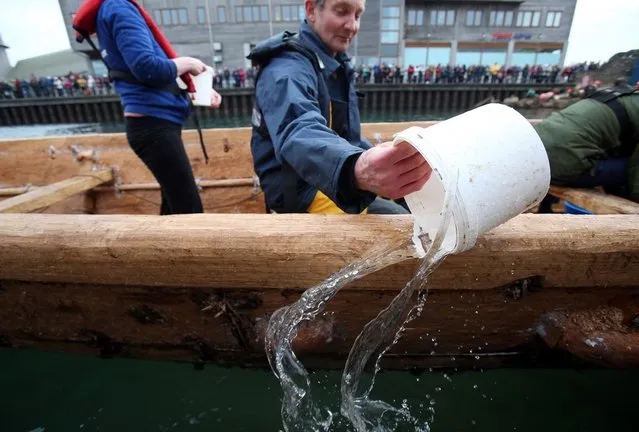
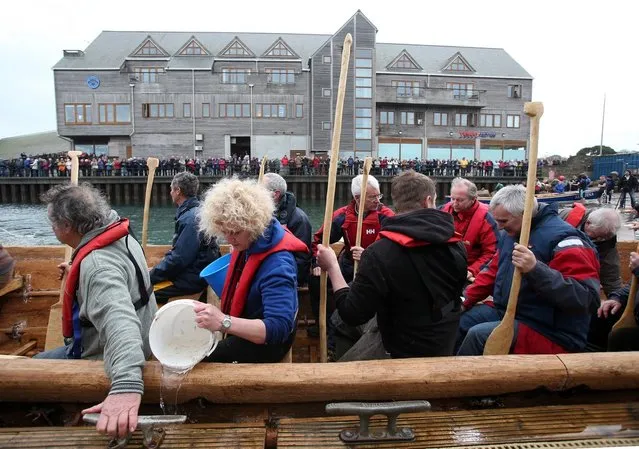
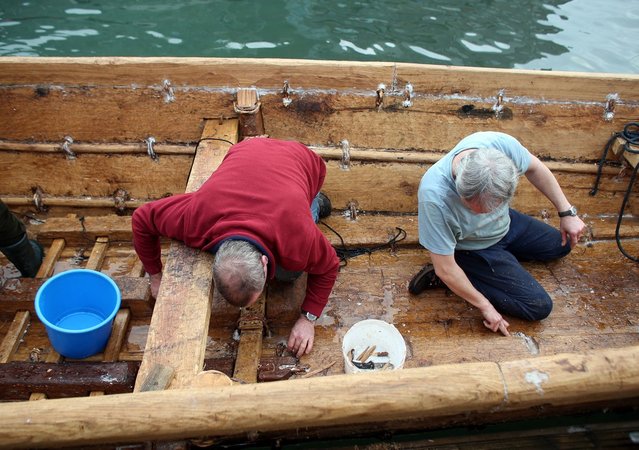
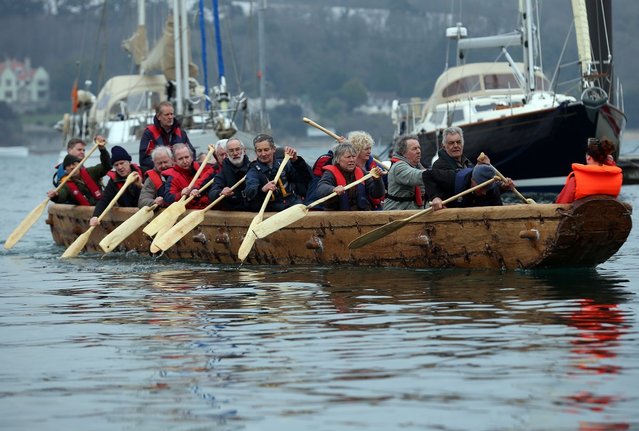
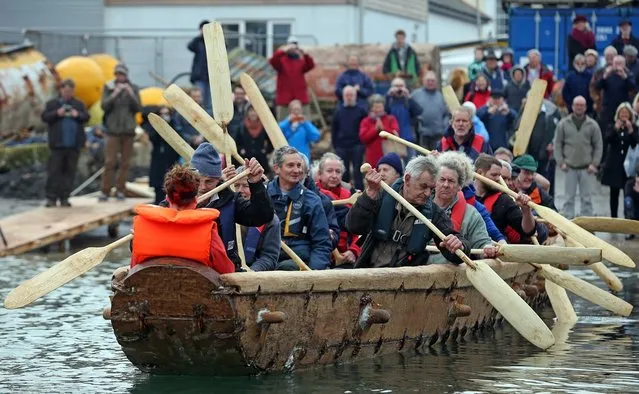
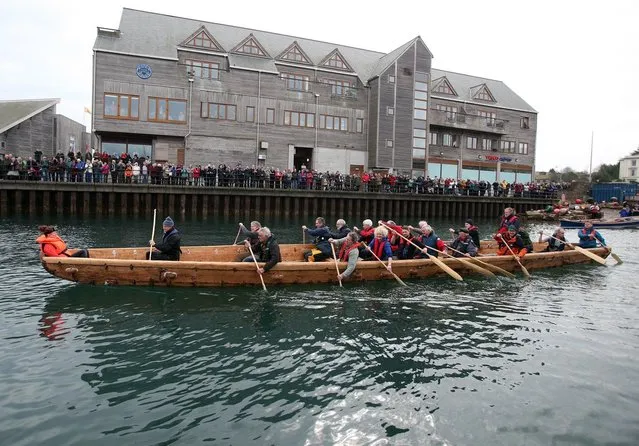
07 Mar 2013 08:48:00,
post received
0 comments
